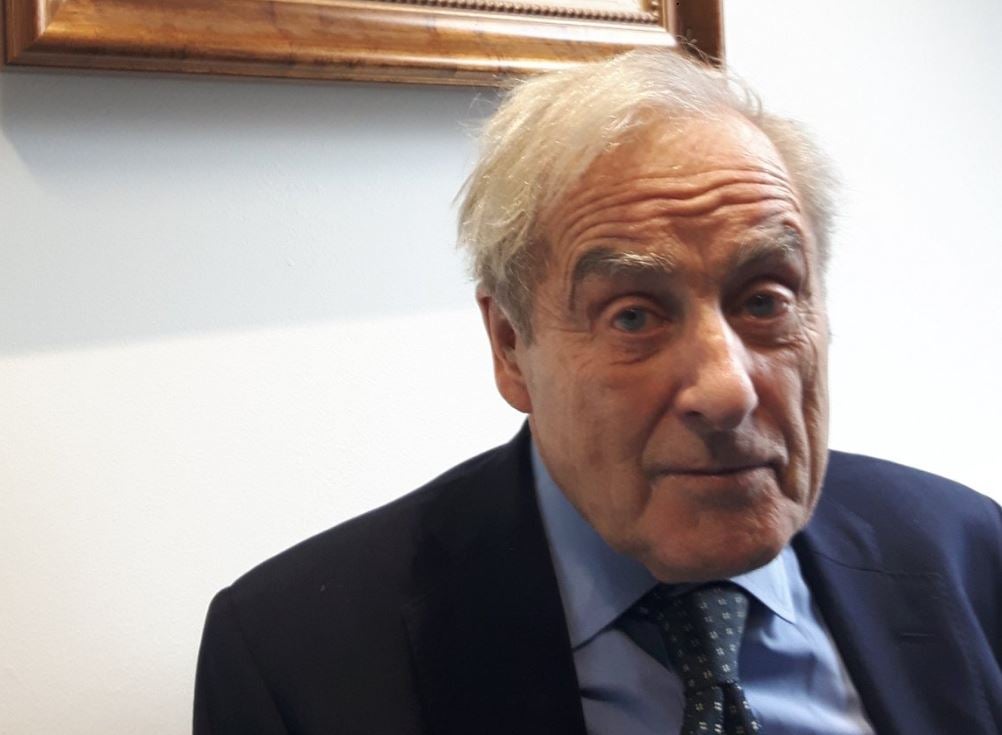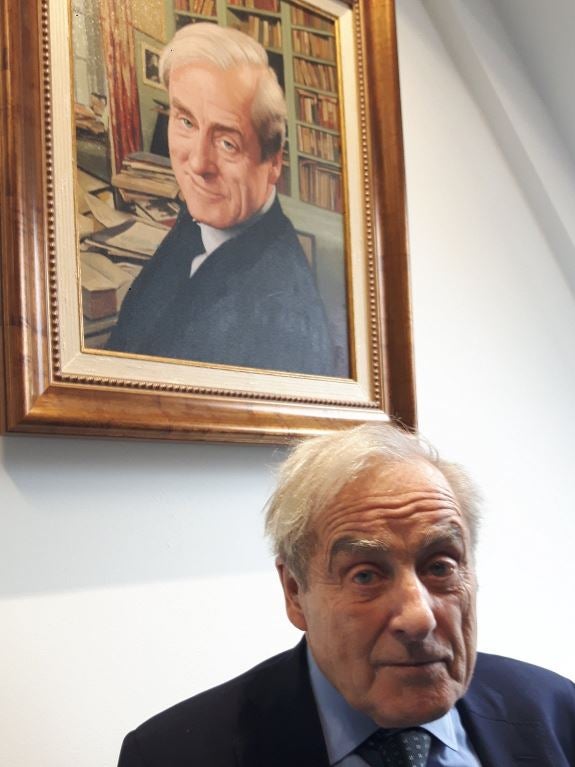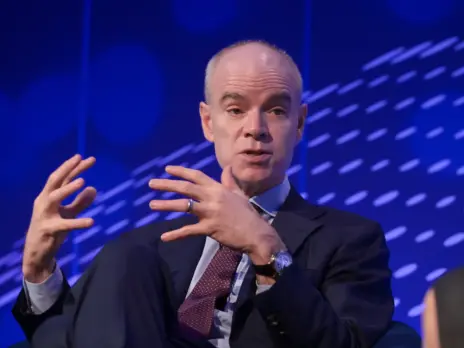
Former Sunday Times editor Sir Harold Evans has branded Facebook and Google “disgraceful” for their failure to tackle the spread of the fake news stories which have acted as political propaganda.
And he has said he remains supportive of Section 40 of the Crime and Courts Act being enacted. This would impose punitive costs in libel and privacy cases on publishers who refuse to sign up to a Royal Charter-backed press regulator.
Repealing Section 40 was the subject of a campaign which was supported by nearly every national and regional newspaper publisher in December 2016 and January of this year.
Sir Harold told Press Gazette: “I’m in favour of arbitration and I’m not impressed by the reporting about Section 40.
“I really worried a great deal about the campaign against it saying it harmed investigative journalism. I’m always in favour of a campaign but not one which distorts the essential facts.
“Let me tell you about my criteria on investigative journalism. Do not take up a campaign until you have done a thorough investigation, do not take up a campaign until you are satisfied in terms of truth, the law and your conscience that you are going to give absolute attention to criticism of the campaign whether factually or in opinion terms. You cannot begin a campaign until you have fulfilled those two things.
“Thirdly do not begin a campaign on something of a minor issue because you are wasting the public’s time and attention, and fourthly, once you have concluded the investigation and you have discovered there’s nothing there you have a moral obligation to report that.”
He was speaking at the new central London offices of Royal Charter-backed press regulator Impress as it opened a conference room named after him.
Sir Harold, 88, is a supporter and patron of Impress, which regulates around 50 hyperlocal and specialist titles – but no major newspaper publishers.
He was also there for the unveiling of a portrait of him which was commissioned by one of the beneficiaries of the Thalidomide Trust in recognition of his support for victims of the drug over more than half a century.

Asked why he favours Impress over the Independent Press Standards Organisation (the regulator set up and funded by newspaper and magazine publishers) he said: “The record of the publishers after listening to the evidence of Hacked Off has not filled me with the sublime confidence to take off in their kite. What was revealed by Leveson was a disgrace.”
He said that he had written a book about the history of flight and recalled one early aviator who tried taking to the air in various devices and failing before eventually falling to his death.
He said: “I thought ‘I don’t think I am going to trust myself with a contraption which is financed by the people who perpetrated some of the worst offences’. I was impressed by Impress as independent and uninfluenced by ownership or money.”
Asked whether he was concerned that Impress is indirectly funded by Max Mosley (via a family charity) he said: “Indirect is an important word. I’m completely convinced that he doesn’t have any impact whatsoever on the conduct of Impress any more than, for instance, Lord Rothermere has on the conduct of the Daily Mail – which I’m told is none.”
He added: “I’m not saying I’m pre-condemning IPSO but they haven’t done any investigation of any kind. I’m sure they will be dealing adequately with complaints because it’s easy to deal with complaints, if you’re wrong just admit it.
“It’s harder to deal with something like, say, the coverage of Brexit which seemed to me not to be as chaste as an angel. The opinions of the proprietors of the Telegraph and The Sun and so on seemed to be not wholly a million miles away from the news coverage.”

Talking in particular about press coverage of the High Court decision in November that Parliament should decide whether Britain activates Article 50 of the Lisbon Treaty to leave the EU, he said: “I think the defenders of truth should be, and normally are, firstly a free press – and that means living a society where there are laws which you have to contend with and most of the time obey and sometimes strive against.
“Secondly the judiciary, which as an institution is one of the defenders of a free press and freedom. The third of course is academia.”
He warned that in the United States at the moment all three of these are “under attack by Donald Trump”.
He said under Trump it seems like “there’s no such thing as truth there is only what people believe, so therefore the truth becomes irrelevant.” He added: “Good hard truth is very hard to establish but vital to defend when it is established. Otherwise everything else is relative.”
On the subject of fake news, he rounded on the digital giants who allow it to flourish.
He said: “Zuckerberg and Google and company are disgraceful, they have huge amounts of money which is inverse in proportion to the level of their conscience and competence. Don’t tell me people who are worth hundreds of billions of dollars can’t detect fake news and stop fake news.
“Fake news for instance like the Pope is going to vote for Donald Trump and Hilary Clinton is going to let all the criminals out of prison. Those appear on these websites. Is anybody there in charge? They are too busy counting the money. That is a real threat.”
Evans is most remembered for the Thalidomide investigation and campaign at The Sunday Times into how the drug’s makers had failed to test it adequately and ignored warnings about its dangers.
It resulted in a £20m compensation payout in 1973 to the UK victims.
Speaking to Press Gazette at the Impress event today, Guy Tweedy of the Thalidomide Trust, revealed how Sir Harold had continued to help those afflicted by Thalidomide and to support an ongoing campaign which has secured payouts worth €5bn for those deformed by the drug around Europe over the last ten years.
Tweedy, who is himself a victim of Thalidomide, said: “Harold Evans is one of the most important people in my life for what he did for those affected by Thalidomide in the 1970s. If he hadn’t done what he had done in 1973 I don’t think there would be a Thalidomide Trust.”
Email pged@pressgazette.co.uk to point out mistakes, provide story tips or send in a letter for publication on our "Letters Page" blog






